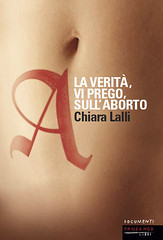Ban preventing couple of healthy carriers of genetic disease from
screening embryos for in vitro fertilisation violated their right to
respect for their private and family life
In today’s Chamber judgment in the case of Costa and Pavan v. Italy (application no. 54270/10), which is not final, the European Court of Human Rights held, unanimously, that there had been: a violation of Article 8 (right to respect for private and family life) of the European Convention on Human Rights.
The case concerned an Italian couple who are healthy carriers of cystic fibrosis and wanted, with the help of medically-assisted procreation and genetic screening, to avoid transmitting the disease to their offspring.
The Court noted the inconsistency in Italian law that denied the couple access to embryo screening but authorised medically-assisted termination of pregnancy if the foetus showed symptoms of the same disease. The Court concluded that the interference with the applicants’ right to respect for their private and family life was disproportionate.
[...]
Decision of the Court
Article 8
The Court considered that the applicants’ desire to resort to medically-assisted procreation and PID in order to have a baby that did not suffer from cystic fibrosis was a form of expression of their private and family life that fell within the scope of Article 8.
The fact that the law did not allow them to proceed in this manner therefore amounted to an interference with their right to respect for their private and family life which was “in accordance with the law” and pursued the legitimate aims of protecting morals and the rights and freedoms of others.
The Italian Government justified this interference by the need to protect the health of the mother and child and the dignity and freedom of conscience of the medical professions, and to avoid the risk of eugenic abuses. The Court observed first of all that the notions of “embryo” and “child” must not be confused. It could not see how, in the event that the foetus proved to have the disease, a medically-assisted abortion could be reconciled with the Government’s justifications, considering, among other things, the consequences of such a procedure for both the foetus and the parents, particularly the
mother.
The Court stressed the difference between this case, which concerned PID and homologous insemination, and that of S.H. v. Austria, which concerned access to donor insemination. Furthermore, although the question of access to PID raised delicate issues of a moral and ethical nature, the legislative choices made by Parliament in the matter did not elude the Court’s supervision. The Court noted that of the 32 Council of Europe member States whose legislation it examined, PID was only prohibited in Italy, Austria and Switzerland (regulated access to PID was currently being examined in Switzerland).
The Court observed that the inconsistency in Italian law – prohibiting the implantation of only those embryos which were healthy, but authorising the abortion of foetuses which showed symptoms of the disease – left the applicants only one choice, which brought anxiety and suffering: starting a pregnancy by natural means and terminating it if prenatal tests showed the foetus to have the disease. The Court accordingly considered that the interference with the applicants’ right to respect for their private and family life was disproportionate, in breach of Article 8.
Article 14
Discrimination, within the meaning of Article 14, meant treating persons in similar situations differently without an objective and reasonable justification. Here the Court noted that, where access to PID was concerned, couples in which the man was infected with a sexually transmissible disease were not treated differently to the applicants, as the prohibition applied to all categories of people. This part of the application was therefore rejected as being manifestly ill-founded.
Il comunicato è qui.
martedì 28 agosto 2012
La Corte europea sulla legge 40
Postato da Chiara Lalli alle 11:46 2 commenti
Etichette: Corte europea dei diritti dell'uomo, Diagnosi genetica di preimpianto, Diagnosi prenatali, Legge 40/2004
Iscriviti a:
Post (Atom)

























